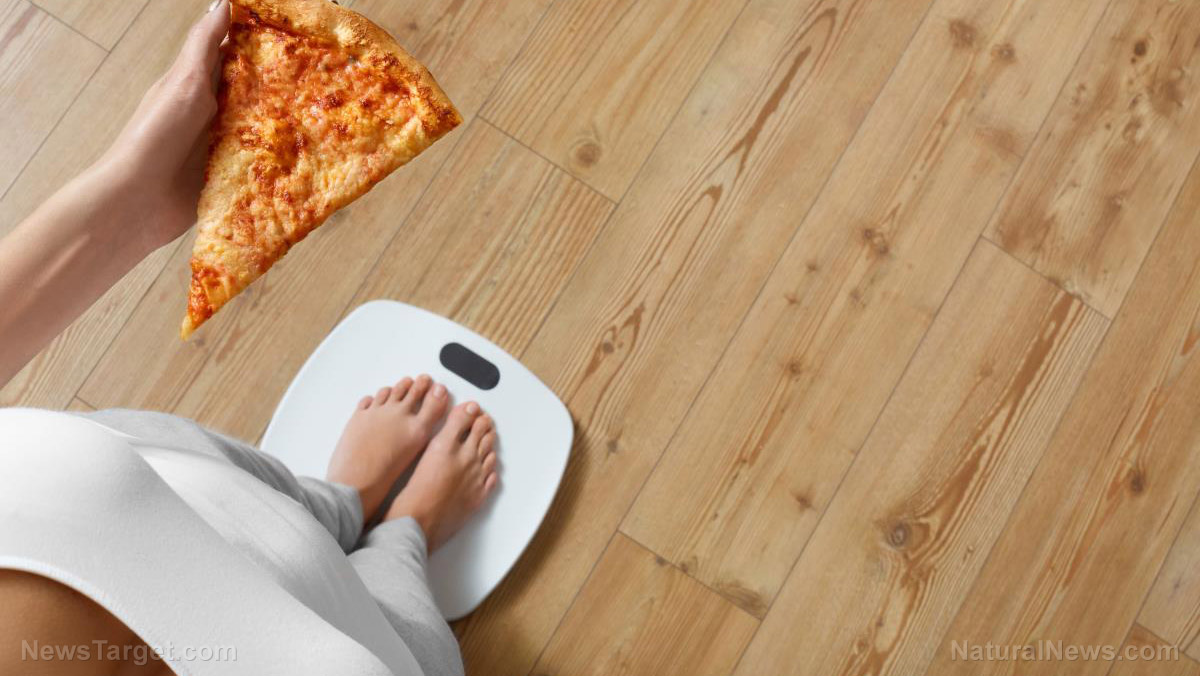Bad eating habits that cause weight gain
11/11/2019 / By Zoey Sky

It can be challenging to lose weight, but one of the most effective ways to do so is through exercise and proper nutrition. However, this may be difficult if you have bad eating habits.
Unhealthy eating habits and food choices
People overeat for different reasons, but if you want to improve your diet and maintain a healthy weight, you need to understand the difference between eating habits and food choices.
Eating habits or style indicate various practices that you’ve developed over time, like how much you eat, the timing of your meals, and how fast you eat. Your eating style may be influenced by choices you make or family culture or environment.
On the other hand, food choices are the foods that you prefer to eat as a snack or during meals.
Review the list of bad eating habits below and consider making changes to your own eating style that can help you avoid gaining weight.
Eating in front of a computer or television
When you eat while doing something else, you’re not paying full attention to how much you’re eating. Don’t eat lunch while you’re working on your computer or watching a TV show.
Mindless eating
Not paying attention to your meal can make you overeat. Savor each bite. There are plenty of flavorful, nutritious meals you can eat to help you avoid binge-eating and late-night snacking.
Consuming too much high-calorie or high-fat foods
If you often ate greasy, high-fat foods as a child and continue to do so to this day, it’s time to change your eating habits. Consume everything in moderation, even healthful foods.
Snacking on junk food
You’re unlikely to gain weight from snacking on fresh fruits. But if you’re like most people, you probably snack on high-calorie junk food, which is bad news for your weight. Meals that include fast food or snacks bought from a convenience store means you’re consuming a lot more calories, fat, and sugar.
Portion sizes
Stick to a standard serving size to keep all your meals balanced and within a normal calorie range.
Eating meals at random times
Follow a regular schedule for all your meals and snacks. Doing this ensures that you don’t randomly grab food and eat whenever you think you’re hungry.
Eating too fast
Eating fast can you more likely to overeat. Your brain and stomach communicate with each other: Signaling hunger to let you know it’s time to eat, and signaling fullness to let you know it’s time to stop.
However, it takes at least 20 minutes after eating before your brain receives the signal telling it that your stomach is full. If you eat too fast, you would have consumed too much food before this signal is sent to your brain.
Eating when you’re in a hurry
When you’re running late, ordering fast food may be the most convenient – but the least nutritious – option.
Going on fad diets
Fad diets can make you deprive yourself of enough food. This can make you overeat and even binge-eat junk food on your “cheat days.” Instead of going on fad diets, follow a balanced eating plan like the Mediterranean diet to improve your eating habits.
Exercise regularly and practice mindful eating
To avoid unwanted weight gain, try the following tips to improve your eating habits.
- Encourage your whole family to engage in fun physical activities. Try sports like basketball or badminton, or take a walk around the block after dinner.
- Eat filling snacks like homemade trail mix, an apple, or vegetable sticks and hummus.
- Control your portion sizes or use smaller plates. When following recipes, check the recommended serving sizes.
- Practice mindful eating. Don’t eat in front of the TV or your work computer and savor every bite of your food. Chew slowly and pay attention to your body’s fullness signals.
- Consume fiber-rich foods to reduce total calorie intake.
Eating too much junk food not only causes unwanted weight gain, all that cholesterol and fat can raise your risk for health problems like heart conditions and diabetes. Make positive changes to your eating habits and eat more fruits and vegetables to prevent weight gain and improve your overall well-being.
Sources include:
Tagged Under: diet, eating habits, fast food, fasting, food choices, nutrition, obesity, overeating, overweight, weight gain
RECENT NEWS & ARTICLES
COPYRIGHT © 2017 FIGHTOBESITY.NEWS
All content posted on this site is protected under Free Speech. FightObesity.news is not responsible for content written by contributing authors. The information on this site is provided for educational and entertainment purposes only. It is not intended as a substitute for professional advice of any kind. FightObesity.news assumes no responsibility for the use or misuse of this material. All trademarks, registered trademarks and service marks mentioned on this site are the property of their respective owners.




















